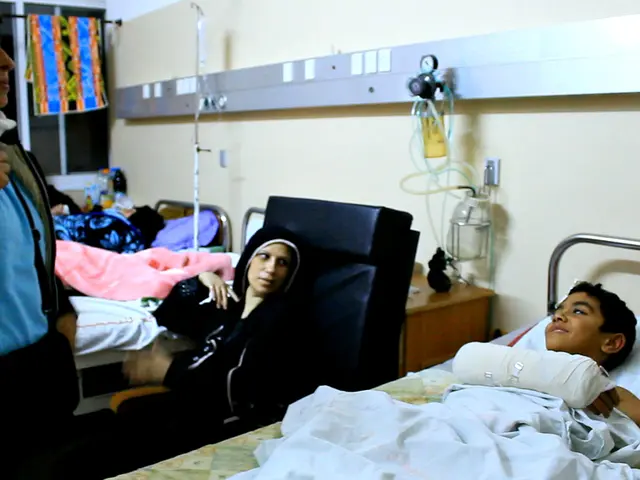EU Commission advocates extensive penalties against Israel
The European Union (EU) has proposed far-reaching sanctions against Israel in response to the ongoing crisis in the Gaza Strip. The proposed sanctions, if approved, could significantly impact Israel's trade in economy, as the EU is its most important trade partner.
The EU Commission's initiative has faced criticism from Israel, with Finance Minister Bezalel Smotrich and Police Minister Itamar Ben-Gvir being specifically targeted for sanctions. Israel has accused the EU of relying on information from Hamas and playing into the hands of the terrorist organization.
Israel's Foreign Minister, Gideon Saar, wrote in a letter to Commission President Ursula von der Leyen that it was "disproportionate" and "unprecedented" to consider suspending certain trade in value due to Israel's actions in the Gaza Strip.
The aim of these sanctions is to pressure Israel to change its course of action in the Gaza Strip. The proposed sanctions include the withdrawal of preferential trade treatment and punitive measures against extremist Israeli ministers and settlers.
The support of 15 of the 27 EU countries, representing at least 65 percent of the EU's total population, is needed to approve the trade sanctions. However, without the support of Germany or Italy, the approval of the trade sanctions is currently not foreseeable.
The total trade in volume in goods between the EU and Israel in 2024 was 42.6 billion euros. EU imports from Israel were valued at 15.9 billion euros, while EU exports to Israel were valued at 26.7 billion euros. This means that Israel's trade with the EU accounted for around 32 percent of its total international trade in goods.
The EU Foreign Policy Chief, Kaja Kallas, has appealed to Germany and Italy to support the proposed sanctions or propose other means of pressure. Kallas stated that the planned trade sanctions would impose high costs on Israel.
The proposed sanctions come amidst calls for an immediate ceasefire, unhindered access for humanitarian aid, and the release of all hostages held by Hamas, as stated by von der Leyen. The Palestinian terrorist organization Hamas is accused by the EU commission of initiating the Gaza war by carrying out a terrorist attack on Israel on October 7, 2023, killing around 1,200 people and abducting more than 250 others.
So far, there is no publicly available information specifying which European countries have apparently voted against the EU Commission's proposed trade sanctions on Israel. The EU appears deeply divided on this issue, but no detailed country-by-country voting record is reported yet.
Israel has stated that it was forced into the Gaza war after the Hamas terror attack. Despite the criticism and the potential economic impact, the Israeli government has not yet publicly commented on its response to the EU's proposed sanctions.
Read also:
- United States tariffs pose a threat to India, necessitating the recruitment of adept negotiators or strategists, similar to those who had influenced Trump's decisions.
- Weekly happenings in the German Federal Parliament (Bundestag)
- Southwest region's most popular posts, accompanied by an inquiry:
- Discussion between Putin and Trump in Alaska could potentially overshadow Ukraine's concerns








